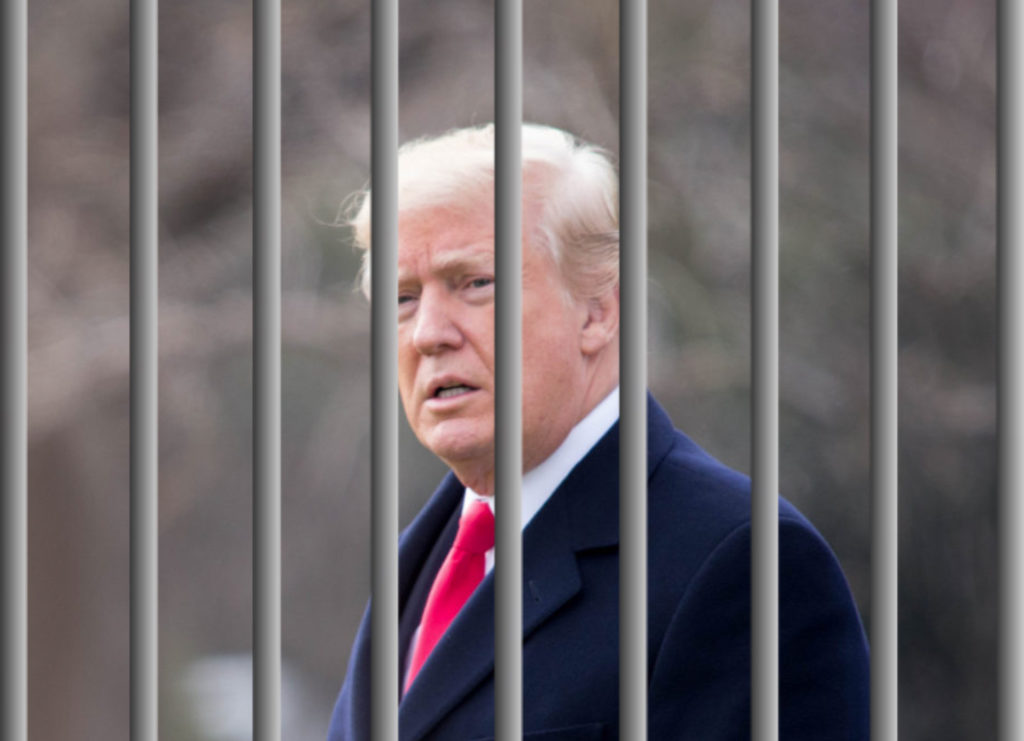The DOJ’s endgame with Donald Trump gets explosive

It’s anyone’s guess as to when the DOJ will criminally indict and arrest Donald Trump. It could be before or after the midterms. It could be after the new year. It could be tomorrow. Take your pick. But based just on what’s become publicly available about the criminal cases the DOJ is building against Trump, there’s no longer any doubt whatsoever that the DOJ is going to indict him. In fact it sure looks like we’ve rather explosively entered the endgame.
Here’s what I suspect has been going on with the DOJ’s case against Trump, if I had to make an educated guess based on the publicly available information that’s surfaced to date. Trump’s theft of nuclear secrets – almost certainly for nefarious purposes – is his most serious crime in the eyes of the law. Moreover, the DOJ’s priority throughout this probe has to have been tracking down the classified secrets he stole. That’s meant cultivating sources inside Mar-a-Lago so it could identify the specific locations of the documents before going in to get them. That’s also presumably involved quietly tracking down documents that Trump gave or sold to others, while they still had their guard down, before tipping anyone off by going into Trump’s home.
While this process was playing out, any other federal criminal charges against Donald Trump had to wait. The DOJ surely could have indicted Trump six months ago for his election overthrow plot. But doing so would have put the effort to track down the classified documents at risk, because if Trump was indicted for any reason, it might have spooked anyone he’d given classified documents to, and sent them underground.
Now that the DOJ and the intelligence community have finally sorted out Trump’s classified document crime spree as best they can, they’ve finally gone into his home and seized the documents that they’ve known all along were there, and that they’ve been surveilling all along. And now that the DOJ can finally indict Trump in his nuclear secrets scandal, it’s going ahead and indicting him on everything else as well, as evidenced by the reported forty grand jury subpoenas in a week and the seizure of Mike Lindell’s cellphone.
The DOJ has a long pattern of taking this kind of approach. If it’s indicting someone for a serious crime, it’ll also tack on indictments for as many other lesser charges as possible. Why? Lesser crimes are often more easily proven beyond a reasonable doubt, meaning that even the most hesitant jury will end up convicting on something. In a famous example, the DOJ indicted Paul Manafort on eighteen felony charges, and the jury ended up indicting him on eight of them, which was enough to put him in prison.
Now we’re about to see the same thing happen to Donald Trump. He’s going to get hit with quite a large number of felony counts, for various kinds of crimes. Based just on what’s publicly available, the DOJ appears to be targeting Trump for espionage, obstruction, seditious conspiracy, wire fraud in relation to fundraising on the big lie, and the manner in which his social network was funded. Given how hard the DOJ tries to keep things secret, there are probably more aspects of its investigation into Trump that we don’t even know about.
There will be cries that the DOJ waited too long to indict Trump, that it should have indicted him sooner on the lesser charges, that it’s unfair that Trump has been allowed to roam free all year, that Trump has supposedly been out there doing unspecified “damage” all this time, that these witnesses have supposedly already deleted things from their cellphones, and so on. But these kinds of complaints are typically from people on social media who don’t understand how these kinds of probes even work.
By the time the Feds seize someone’s phone, for instance, they’ve already obtained that person’s texts, photos, and emails from the cellphone carrier or the cloud service provider. Seizing the phone is just a way of digging for more data – and most people don’t really know how to permanently delete things from their phone anyway.
And while Trump’s occasional rallies have been obnoxious, it’s difficult to make an argument that they’ve actually caused any specific damage. If the DOJ had to let Trump run while it gradually and clandestinely tracked down the specific locations of the classified documents he’d hidden in his home or given to other bad actors, then so be it. National security investigations are complicated.
I’ve said from the start that I don’t really care when the DOJ arrests Donald Trump, I only care that it gets a conviction when it does arrest him. Obviously Trump has to be indicted within a certain timeframe so that his trial will take place well before the 2024 election season becomes a real thing, and so on, but the DOJ knows how to read a calendar.
Maybe it’ll take three days and maybe it’ll take three months, but Trump’s federal indictment and arrest is coming. It’s plain obvious at this point. And it’ll be on so many different kinds of criminal charges, he’ll end up convicted on plenty of them. Donald Trump is going to prison. Now let’s focus on winning the midterms!
